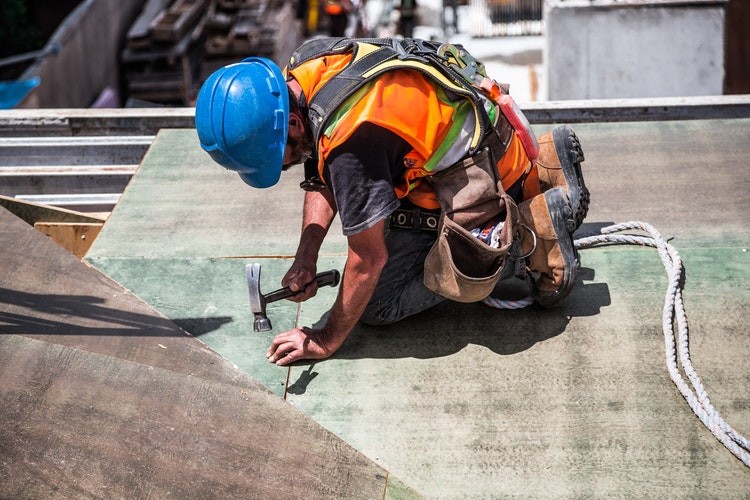
Construction workers know one thing for certain: they’re working in one of the UK’s most important and profitable sectors. And, when you’re working as part of a franchise, you’ll also have a lot more job security than many of your competitors. If becoming a construction worker sounds like the right thing for you, here’s what you need to know.
Covid brought the construction industry to a halt during the early months of the pandemic, but since then, the industry has made a remarkable comeback. All the pent-up demand has led to a construction boom throughout 2021, meaning the construction sector’s output today stands at a 24-year high [PMI].
And it’s construction workers at the heart of all of it. In this booming sector, construction workers are on-site, helping build commercial, civil engineering and various other projects. With many of the biggest businesses in the sector franchises, working with a big construction franchise to become a construction worker has never been so popular.
Sharp increases in business activity were seen across all three main areas of the construction sector monitored by the survey. Construction work in the house building sub-category (index at 68.2) increased at the fastest pace since November 2003.
- Construction Global
What does a construction worker do?
The construction industry has a wide range of sub-sectors where construction workers play a big role. The specifics of your role will vary somewhat depending on which sector you’re working in, as well as which franchise you choose to work with, but most commonly, some of the following tasks will be a part of your daily routine:
- Meeting new clients and discovering their needs
- Negotiating with suppliers
- Formulating plans with your colleagues
- Processing invoices
- Carrying out site inspections and ensuring safety protocols are being followed
- Using industry-leading equipment to help carry out projects and builds
If this all sounds good to you, you could be the ideal construction worker. If you’re ready to take the next steps and start your own construction franchise business, here’s what you need to do.
How to become a construction franchisee
>> Read more:
1. Get qualified
Not everyone can get started in construction at the drop of a hat. You’ll need to have passed some basic qualifications and health and background checks to make sure that you’re in the best possible position. For example, you might want to consider whether having some of the following qualifications would be useful to you:
- Apprenticeships in brick-laying, carpentry, assembly or civil engineering
- Level 2 qualifications in carpentry, joinery or decoration
- An SCQF in brick-laying, carpentry, painting and decorating
- An SVQ in brick-laying, construction, plastering, or painting and joining
- A CSCS in health and safety
- Any other qualifications, such as working from heights or street works
There are a wide range of different qualifications available to you. If you don’t have some or any of these at the moment - don’t worry. Many franchises don’t require you to have specific industry experience or qualifications beforehand, as you will receive training and support throughout the process of starting your franchise. You could earn them over time.
2. Understand the market
Working with a construction franchise brings many advantages, but that doesn’t mean that every franchise business is a guaranteed success. When you’re in the early stages of starting your business, you’ll need to do a fair bit of analysis on the market, who the big players are in the construction sector, and what you will be able to do differently to make your franchise a success.
Pay attention to some of the future trends in the sector, and how you can capitalise on some of the new technology changing the way the sector works. In short, make sure you do some extensive research on this industry. You don’t need to be able to recite every statistic, but make sure that you have a good understanding of the lay of the land.
>> Read more:
3. Decide which franchise is the right fit for you
Following the research that you have already done, you should have a good idea of what you want out of your franchising experience, and which franchises may or may not be a good fit for your needs. As almost all of the biggest businesses in the construction sector are franchises, you will need to choose the right franchise for you.
The right franchise will give you training and support, a pre-existing customer base and reputation, as well as many of the stickier parts of setting up a business, such as marketing. You will need to go through what each franchise is offering, and eventually come to a decision on which is the best way to go. Consider your needs and what kind of support you will need going forward, and you should eventually narrow down your options to the right franchise for you.
4. Sign your franchise agreement
All that remains left to do is to sign your franchise agreement. This makes all your hard work and preparation worth it, as you’ll now finally be able to get out there and start working on exciting construction projects.
Franchise agreements aren’t just ceremonies, though. This is a legally-binding document outlining both your commitments and those of your franchisor. If you or your franchisor fails to stick to this agreement there can be consequences, and your franchise could potentially be suspended.
Become a construction worker today and reap the rewards of the highly profitable construction industry
For an ambitious and profit-oriented franchisee, construction is one of the best industries to work in. With so much pent-up demand exploding into life, this industry is awash with money and opportunity. If you’re keen to get involved, you should now have a good idea of what it takes to become a construction worker and start your own construction franchise.
If this sector isn’t quite what you thought it was and you think you may be better suited elsewhere, try the UK franchise directory. There are many ambitious franchises working in many different industries who are looking for the perfect franchisees to take their business forward, so you’re sure to find the right opportunity for you.
Elliott Fudge, Point Franchise ©
>> Read more articles on the Construction sector






0 Comments